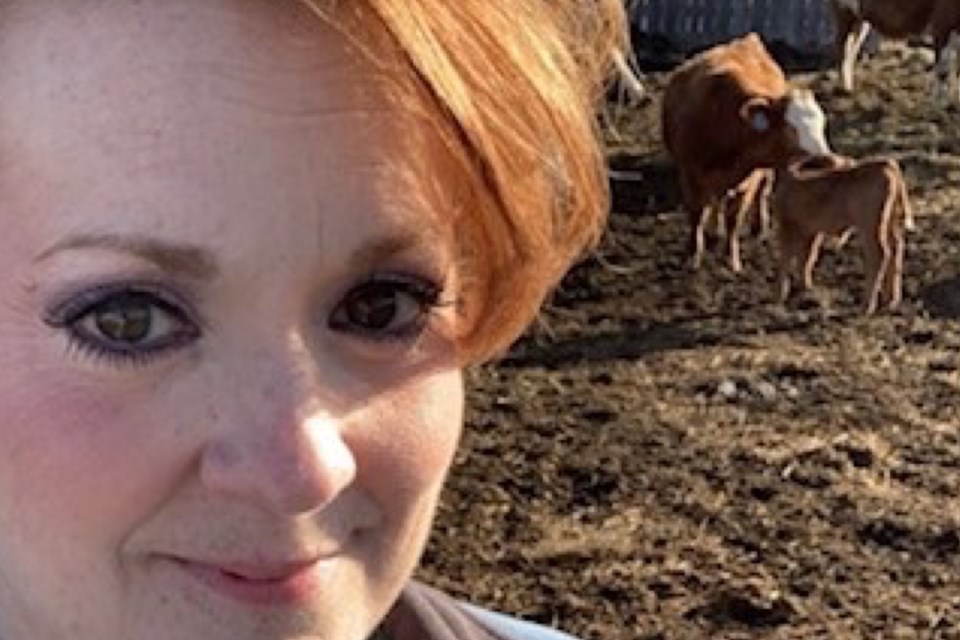COVID-19 long hauler Deb Eleniak is not waiting for a vaccine. Instead, she is anxiously waiting for help to relieve her from her painful and lingering symptoms.
"I would not get a vaccine. I want to get this fixed first," said the 52-year-old Chipman-area woman, one of thousands of Canadians afflicted with the mysterious condition.
According to a CBC report, research has found that one in three of those who've contracted COVID-19 can go on to debilitating fatigue and pain, or issues involving the heart, lung and cognitive function. With those statistics, that could equal up to 200,000 'long haulers' at this point in the pandemic. Another report in the Journal of the American Medical Association indicates about 10 per cent of COVID-19 patients will become long haulers.
Eleniak, who felt the full force of the virus last July, has been experiencing sharp pains, fatigue and brain fog ever since. Her plight was featured in a Great West Media story last September.
Well over six months on, she said there has been no improvement.
"It’s about the same. It's been going on for so long that it is kind of an acceptance of 'this is where I am'," said Eleniak, who still takes at least four extra strength Tylenol tablets every day. "The sharp pains are still there--sometimes they stop me in my tracks."
While there are reports of some long haulers feeling relief after receiving the vaccine, Eleniak--who takes hydroxychloroquine for Lupus--said, "There is not enough information about the effect the vaccine has on people with autoimmune disorders."
In an attempt to get answers, Eleniak recently signed up at a University of Alberta-affiliated clinic - one of three in Alberta - studying post-COVID-19 symptoms in long haulers.
In the meantime, she continues to work as a forensic pathology technician at the medical examiner's office in Edmonton. Eleniak returned to part-time duties in early October and now works in a modified setting five days a week.
While it is a struggle, the return to work and productivity has been a boost for her mental health, according to Eleniak, who lives with husband Terry at their dairy farm 77 km east of Edmonton. "I do have to work as I am putting my daughter through college."
Even with tight family ties--her first grandchild was born last fall-- Eleniak admits she can’t avoid emotionally painful moments away from home.
"I think this world has changed, but not for the good," said Eleniak, adding she hears too many insensitive comments from people when they realize she has lingering symptoms due to COVID-19.
"They'll hear me talk in my raspy voice and say, 'What do you mean you've been that way since July?'
Eleniak has also found support from the COVID-19 long haulers Facebook group (covidlonghaulcanada.com), saying, "It’s calming to know someone else feels some of the same things I do."
The long haulers Facebook group founder Susie Goulding, who contracted COVID-19 a year ago and has not been able to work since, is frustrated by the lack of a response by governments.
"Everybody is on their own because long haulers are not counted," said Goulding, 53. "They have not even given this (condition) a name."
"This is an urgent situation. It is a tsunami of people building up and we are running against the clock," she said.
To improve the dialogue between long haulers and the provinces, Goulding has created Facebook chapters in Alberta, B.C. and Quebec, each with its own set of standards. An Atlantic Canada chapter is also a tentative go.
The COVID Long Haulers Support Group Canada has helped spearhead two petitions destined to be tabled in parliament in early April asking the federal government to recognize long-haul COVID-19 as a condition and provide financial help for people who can't work because of it.



.png;w=120;h=80;mode=crop)
.png;w=120;h=80;mode=crop)